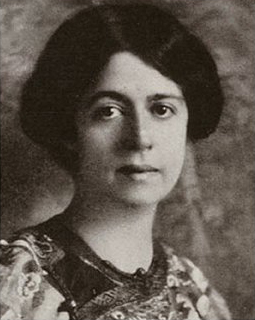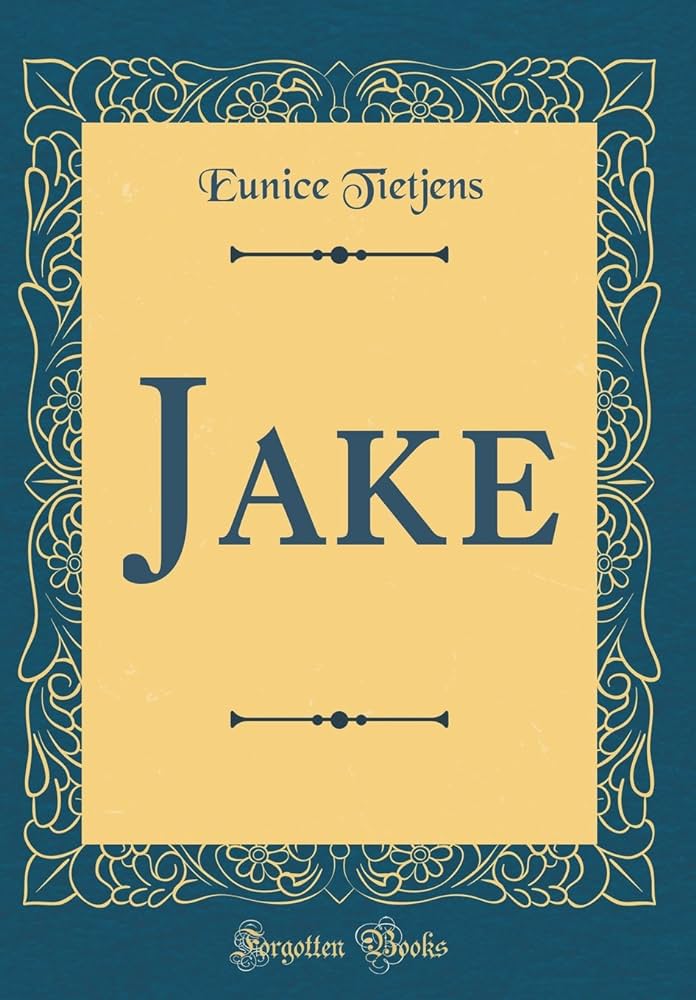Eunice Tietjens traveled the world and used her foreign experiences as material for poems, newspaper articles, essays, and prose. She expressed an attachment, even love, for a variety of places, including China and Japan. She was a major figure in the Chicago Literary Renaissance of the 1920s and 30s, as an editor, journalist, poet, playwright, novelist and conduit between writers at home and around the world. Tietjens published four collections of poetry—Profiles from China: Sketches in Free Verse of People and Things Seen in the Interior (1917), Body and Raiment (1919), Leaves in Windy Weather (1929), and China (1930). Her children’s books included Boy of the South Seas (1931). She also published translations from French and Spanish, plays, the novel Jake (1921), and the memoir The World at My Shoulder (1938). She edited the anthology Poetry of the Orient: An Anthology of the Classic Secular Poetry of the Major Eastern Nations (1928). Tietjens’s work is featured in the anthology The Home Book of Modern Verse (1963).
But no matter how far Tietjens traveled or how long she stayed away, she always considered Chicago home. It was forever “her headquarters,” according to her proposal to launch a new, international magazine in 1931.
Tietjens was born in Chicago and schooled in Evanston until after her father’s death when she was 13. It was then that her lifelong fascination with other cultures began. Her mother, Idea, moved her family to Paris to reignite her dormant career as a painter. The Hammonds (that was Eunice’s maiden name) went to schools in Paris, Geneva, then Dresden. Under her mother’s influence, Tietjens absorbed the cultural landscape—she studied as a painter, became an opera aficionado, regularly attended the theatre, witnessed great artists like the dancer Isadora Duncan, and made her first attempts at writing poetry. She rejected the idea of college. Still a teenager, Eunice met and married the composer Paul Tietjens, but in her autobiography Tietjens characterizes the marriage as short and unsuccessful.
Eunice mothered two children with Paul Tietjens (she would later, with her second husband, give birth to a son). Her oldest daughter, named after Tietjens’s mother, died at the age of four. Shortly after Idea’s death, Tietjen and her younger daughter Janet moved to Evanston, where her mother had returned after years in Paris. She and Janet lived with her mother in a house next to the Charles G. Dawes mansion, on 225 Greenwood Street.
Novelist Henry Kitchell Webster and his wife Mary adopted Tietjens as a friend. Webster, almost a decade older than Tietjens and already a commercially successful author, agreed to mentor Eunice as a creative writer. Tietjens’s mother took Janet to summer in Maine, and Eunice moved into a boarding house in Chicago. There, according to her autobiography, she wrote “diligently, mostly adventure stories, and weekends in Evanston Kitchell would offer critiques and encouragement, though he knew nothing of poetry.”
Tietjens was 27 when she had her “awakening.” Tietjens claims, in The World at My Shoulder, that she could pinpoint this spiritual revelation almost precisely. Margery Currey and Floyd Dell, then husband and wife, had invited Tietjens to a dinner party at their Rogers Park apartment. The party included George Cram Cook, then assistant to Dell on the Chicago Evening Post. After dinner, they “repaired” to Dell’s study. “For the talk ran on poetry,” Tietjens wrote. “For the first time in the many years of my long sleep I heard what had been like a secret vice with me brought out boldly into the open, with no apology, as though it were indeed one of the great facts of existence.” They read aloud Swinburne, Whitman, Middleton, Richard Hovey, Byron and Shelley. “Afterwards I walked home through the dark streets of Evanston. And I walked on air, like one warm with champagne, though I had had no alcohol except of the spirit. Poetry, I cried to myself, is not a dead thing, something that is shut in books to dress library shelves and is taught to school children, something to be given away at Christmas or bought shyly and read in one’s own room as one might take drugs, and never, never spoken of because nobody cares. Poetry is a living thing. I am not alone in the world today, nor am I touched by the sun. Poetry is alive. And I danced in the streets and sang to myself, thereby causing a most unpleasant person to speak to me. But from that evening some floodgate had broken in me and I was beginning to be awake.”
Tietjens regularly placed poems in the fledgling Poetry magazine, both before and after she joined the staff. Monroe and Alice Corbin Henderson included Tietjens’s poetry in their influential 1917 anthology The New Poetry. Tietjens joined the Poetry staff “as office girl and general nuisance about a year after the magazine started.” For a quarter century, Tietjens continued with the magazine, as business manager, assistant then associate editor, contributor, and advisor. She served as acting editor during Monroe’s absence in 1923, putting out issues from July through December, including a themed issue that contrasted established and emerging poets.
Almost from the start, Tietjens found a way to travel broadly while still holding down her position at the magazine. According to Jane Addams Hull-House Museum Director Liesl Olson, Tietjens came back from a 1914 trip through Asia “wearing Japanese-style dress and writing verse influenced by Japanese poetry.” In an April 15, 1915 letter from Coronado, Tietjens wrote, “Dear Lady Harriet…..I’m terribly homesick for Poetry and Chicago and you! When I had read the number I went to bed + cried my heart out out of sheer homesickness….a strange performance indeed for me. And I dreamed all night about you—you were walking through some distant fields of glory and I was afraid to go after you. How well I sympathize with Shakespeare!”
In 1917, Tiejens was hired as the Chicago Daily News’s only woman war correspondent in France. Olson, author of Modernism and the Ordinary, published an essay in the November 6, 2015 Poetry in which she notes that Tietjens was supposed to write stories for women, “but her articles were much broader; her vivid reports of American soldiers in the countryside, food shortages in Paris, air raids, and how French women endured the war reveal her ability to infiltrate a scene and provide intimate, nuanced details of daily life.”
Tiejens’s correspondence to Monroe (and also Henderson) was personal, but it was also purposeful. Tietjens regularly sent home poems collected during her travels, often introducing new, international writers to the magazine. She identified omissions in the magazine’s aesthetics as she helped to shape Poetry into a world-wide force. Those letters to Monroe give some insight into how much Chicago meant to Tietjens. They also demonstrate how Tietjens sustained her editorial career while still following her vagabond instincts. Tietjens wrote Monroe from all over the United States--from Pasadena, California; Pomona, New York; Burlington, Iowa; Coconut Grove, Florida; and many other spots. She sent off letters to Monroe from international destinations like Italy, Tunisia, and Tahiti. Her correspondence with Monroe, too, included return addresses all around Chicagoland, including Lake Forest, Glen Ellyn, and Evanston. In the early 20s, Tietjens wrote from 322 East Erie Street in Chicago, and later in the decade “Mrs. Cloyd Head” used a return address of 154 E. Pearson St., Chicago. By the early 1930s, she uses “2341 Commonwealth Ave. Chicago,” as her return address.
While championing the work of countless writers around the world, Tietjens also advocated for her own work. Tietjens spent years beseeching Monroe to give her the lead spot in a Poetry issue. In a letter dated May 29, 1924, as Tietjens was working on Profiles from Home, she submitted ten poems with the note, “And will you remember that my only unfulfilled longing is to have the lead in “Poetry”?” Finally, in the January 1925 issue, she is the first poet listed. Seven of Tietjens poems were included in that issue, including the lead piece, “The Statue of Liberty,” which includes the line, “She is a gesture given us, a role to play.”
As a renown literary figure, Tietjens was in high demand as a lecturer. She produced a pamphlet indexing her lecture topics, such as “The New Movements in Poetry,”“The Women Poets of To-Day,”“Some Poets I Have Known,”“Japanese Contemporary Poetry,”“Japan of To-Day,” and “Some Aspects of Modern China.” The materials promoting Tietjens as “Poet and Lecturer” include a snippet of praise from the Chicago Daily News critic Henry Blackman Sell. The quote reads, “If I were asked which one of the younger American poets is best equipped to have and to hold a secure place in the hearts and affections of the great American public for the next twenty-five years I should unhesitatingly answer, Eunice Tietjens.” As was her natural instinct, Tietjens also arranged for other artists to lecture, including a collaborative effort with Maurice Browne to bring a series to Chicago Little Theatre.
At home, Tiejens played an instrumental role in building the vibrant literary community for which the Chicago Renaissance became known. She famously pawned her diamond engagement ring from Paul Tietjens to help fund Margaret Anderson and Jane Heap’s new magazine, Little Review. She was a core member and organizer of several professional writing groups, including The 30 Club, which boasted among its ranks authors Margaret Ayer Barnes, Llewellyn Jones, Susan Wilbur Jones, Janet Ayer Fairbanks, and Fanny Butcher. These efforts connected important writers of the city—from Sherwood Anderson to Arthur Meeker to Edgar Lee Masters to Carl Sandburg—and their interactions served as a catalyst or inspiration for her own work and that of others. She was close friends with all these Chicagoans and a large number of other important literary figures, such as Amy Lowell and Sara Teasdale. She also enjoyed deep relationships with important Chicagoans in drama, music, and other arts.
Tiejens left Poetry in 1938, upon her move to Europe and North Africa with her second husband, Cloyd Head. In a letter to Monroe, Tietjens declared, “‘Poetry’ is still my first and last love.”
Donald G. Evans
read less









